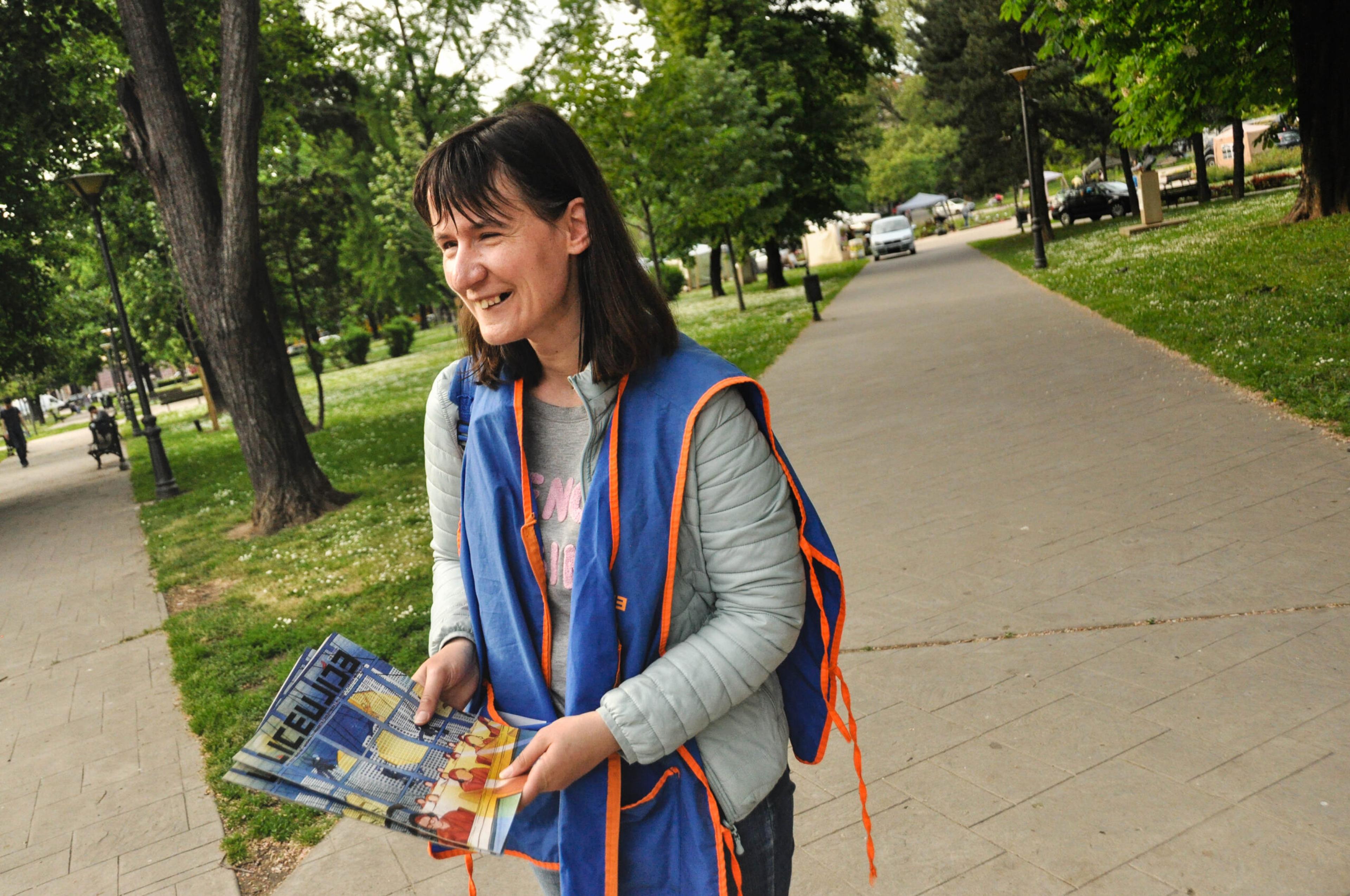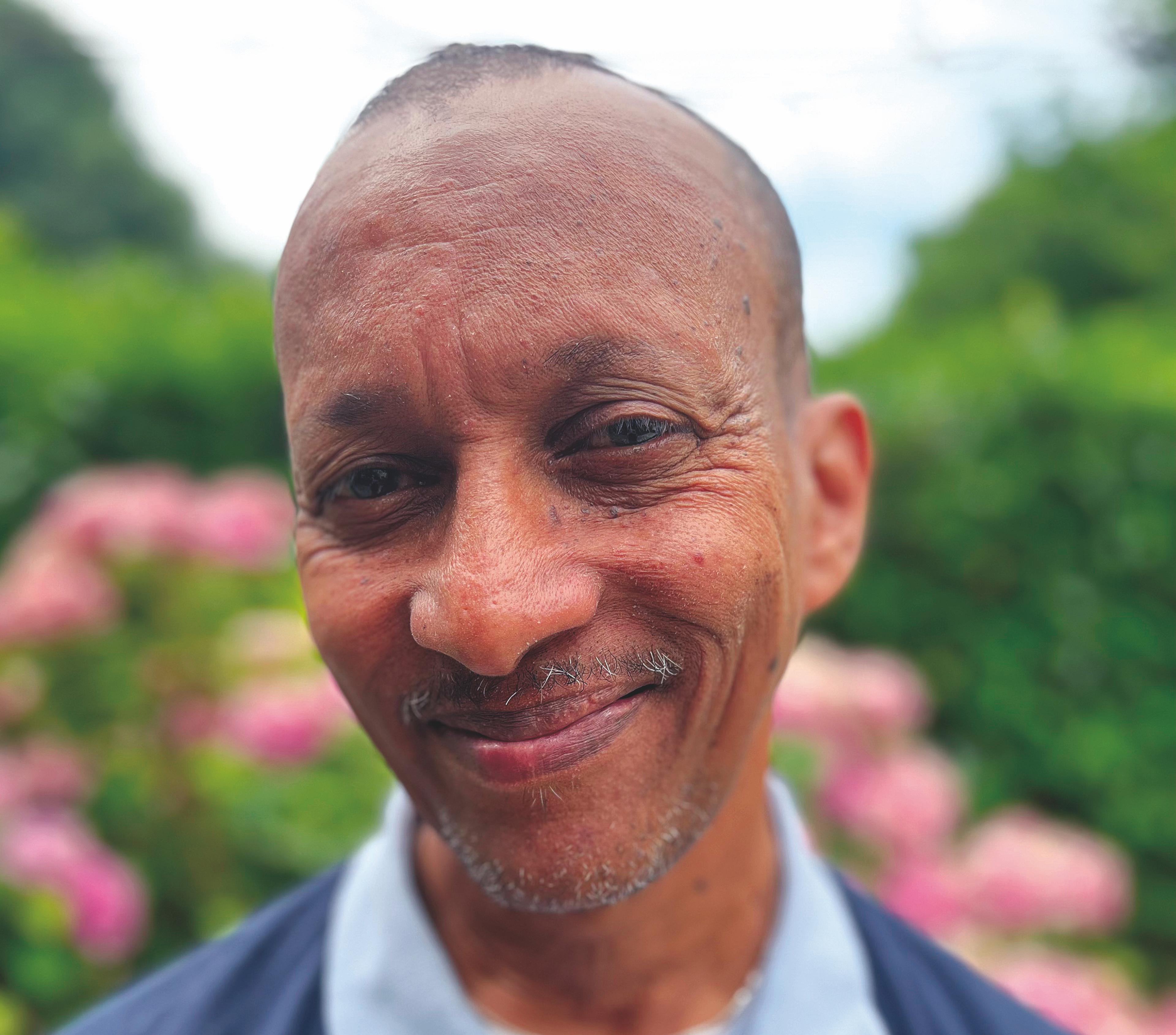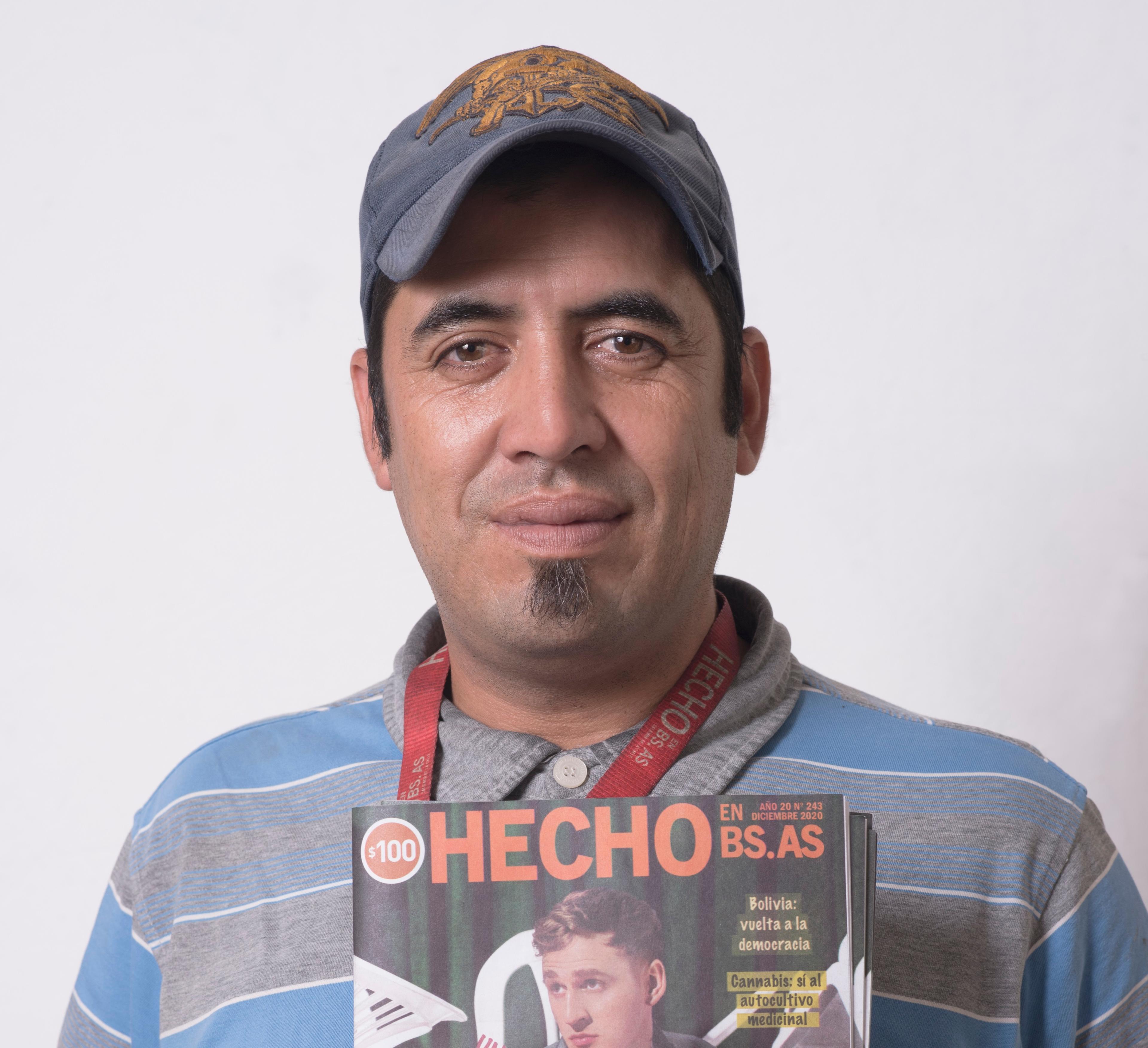Big Issue Korea vendor Kwak Changgab: “You can move forward when you earn some of your own money”
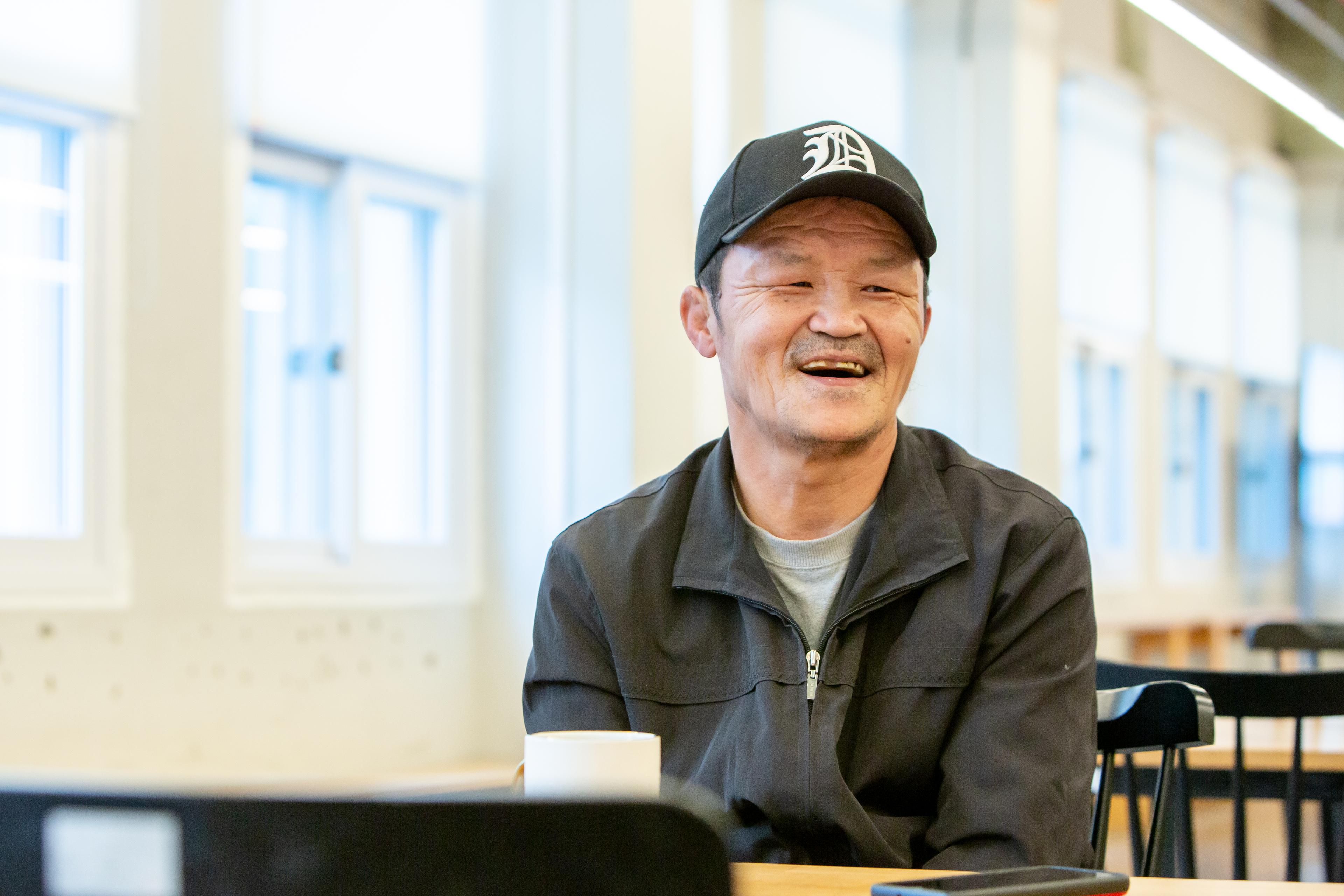
Credit: Kim Sang-joon
By An Deok-hee
- Vendor stories
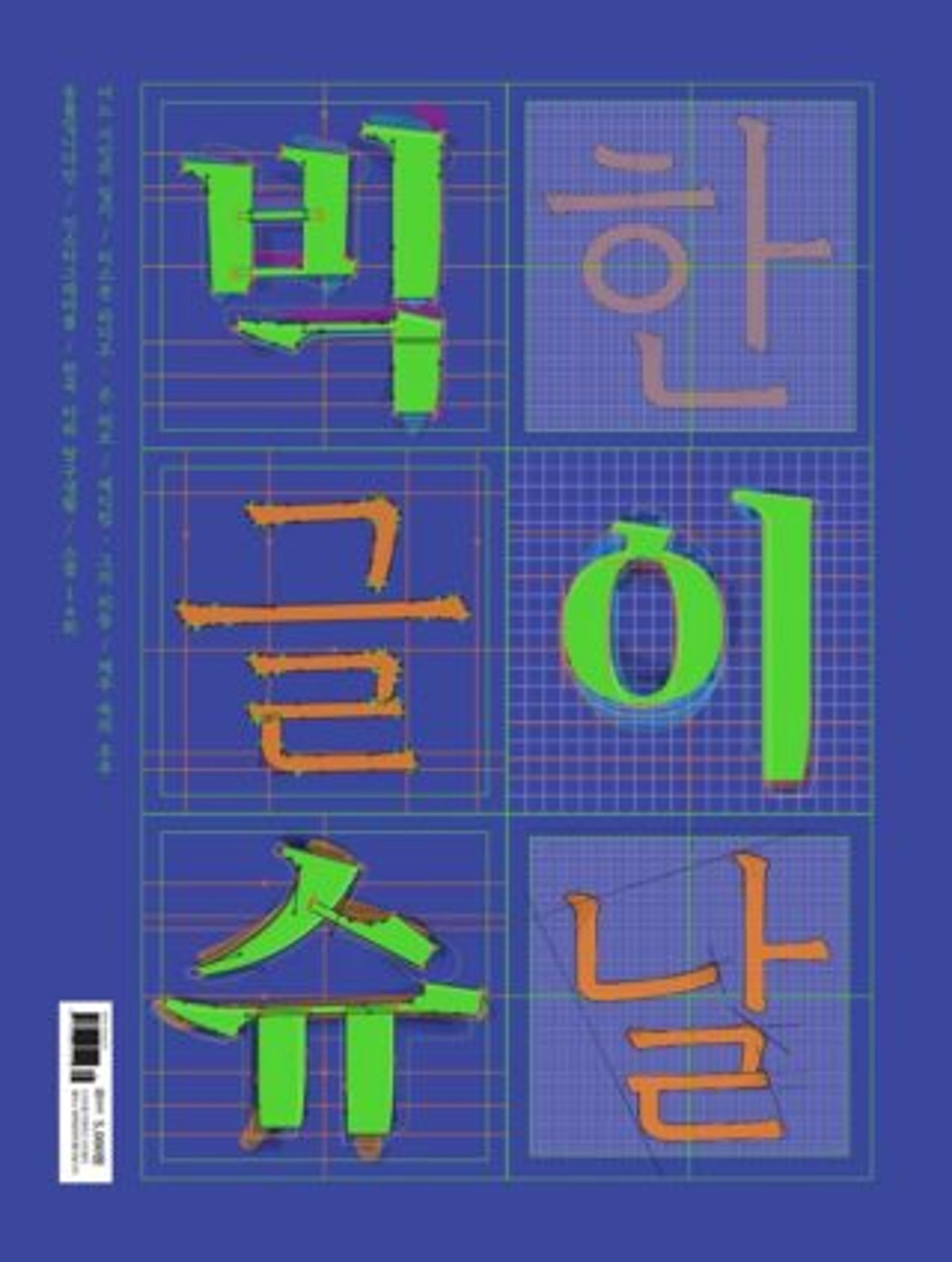
Changgab’s face has a peaceful and relaxed look, which is perhaps surprising for someone who’s lived many years at sea, slept rough at Seoul Station and lived day-to-day in short-term accommodation. Life is good right now, he says. Changgab has been working as a Big Issue vendor since September 2018 and met his wife in 2020. They now share their lives with their dog, Bo-ri, and live in a rented home.
Big Issue Korea: Are you in good health these days? Did you make it safely through the COVID-19 pandemic?
Kwak Changgab: I caught COVID-19 once. I was in an isolation facility for nine days. They told me to go home after the isolation period and called me a taxi [laughs].
Where are you living at the moment?
I’m living in a rented home. Selling The BigIssue qualifies me to live there: I registered for the home in April two years ago, and I moved in on 3 December of that year. So I’ve been living in a rental home in Dangsan-dong in the Yeongdeungpo-gu neighborhood [of Seoul] since then.
What led you to start selling The Big Issue?
I started in September2018. My first pitch was at Noryangjin Station, and in April last year, I moved to Gwanghwamun station before moving to my current pitch at Shindorim Station. In Norayangjin, some people from the hagwons [specialized English language schools] made a report to the police about me working there, so I changed pitches. Shouting “Big Issue!” seemed to irritate people in the area. I kept being reported, so I even went through investigations in the Noryangjin Police Station. [laughs]
Did you know of The Big Issue before working as a vendor?
Yes, I did. Someone was selling the magazine in front of Sukmyeong University Station. It seemed nice, from what I could see of them selling the magazines. I went to Samil Church at Cheongpa-dong, and the administrator there walked with me to the Big Issue office. I had a consultation, and I’ve been working as a vendor ever since.
Are you originally from Seoul?
No. I’m from Wando in Jeolla-namdo [province]. I was on a fishing ship that travelled to the sea off the coast of Gunsan and then went to Seoul. Seoul Station became my home; I was homeless.
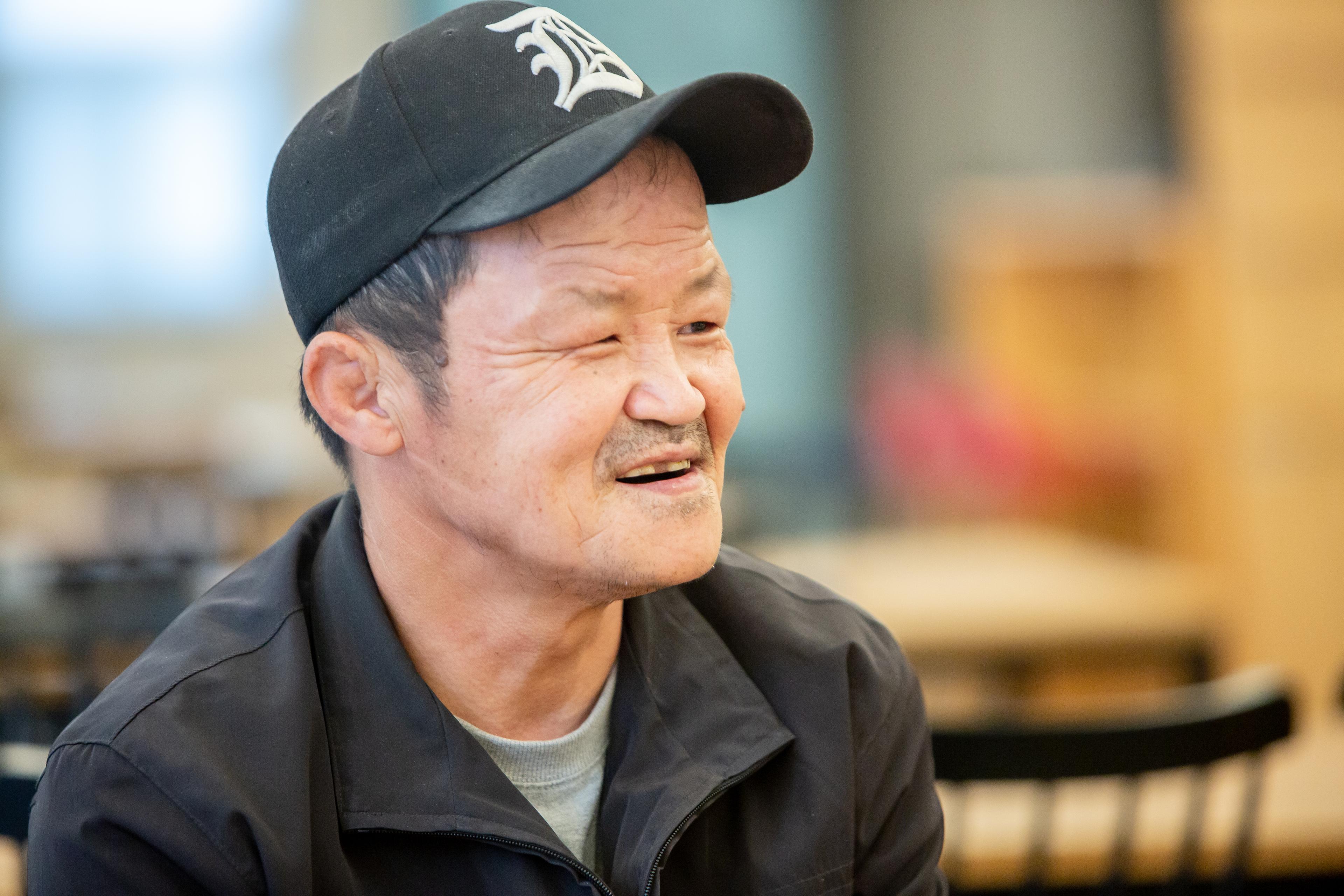
Credit: Kim Sang-joon
How did you end up working on fishing ships?
I went to a job center, and they said I would be able to get a job on-board a fishing boat. The job center was in Mokpo [on the southwestern tip of South Korea]; they got me a motel room. They said I’d be able to get a job if I stayed there for few days. After a week they asked me for 15,000 won. 15,000 won was a big amount of money in those days! That’s how they sell people to work on ships like that and in salt ponds. I worked on a “salted” ship for about four years, and I spent about four and a half years on seaweed ships.
Salted ships?
Yes – that’s a ship for catching salted anchoviesand salted shrimps. Seaweed ships are for gathering seaweed. The ships depart in March and come back in December. We would be at sea all the time and would even make and eat food there. Your stomach quivers when the waves hit – you can’t be on a boat if you have nausea. I was able to work there because I don’t suffer from much of that.
There are so many dangerous tasks out at sea. The deck is slippery on rainy days, and you could trip and get hurt. Even with raincoats and rubber boots, everyone seems trip over. There were also accidents here and there. And fights that arose from people drinking on the ship. People would load up 10 boxes of Soju [a clear, distilled alcohol] before departure. Then they would drink a bottle when we caught fish, and they would eat the fish raw. That led to fights and accidents. Many incidents were not even reported on TV. The sea is… [trails off].
You’ve had a rough life.
Yes, I have. Selling magazines is much, much easier. Things are going well these days; I get to sleep in a house [smiles].
How are things after your move into a rental home?
It’s way easier than living homeless or in goshiwons [tiny apartments measuring around 3.5 square metreswhich can be rented by the dayor month, usually without a deposit]. [My current place is] spacious, clean, and nice. And I share it with someone.
Oh, so you have someone living with you?
Yes, I have a wife. We met at Seoul Station in 2020.
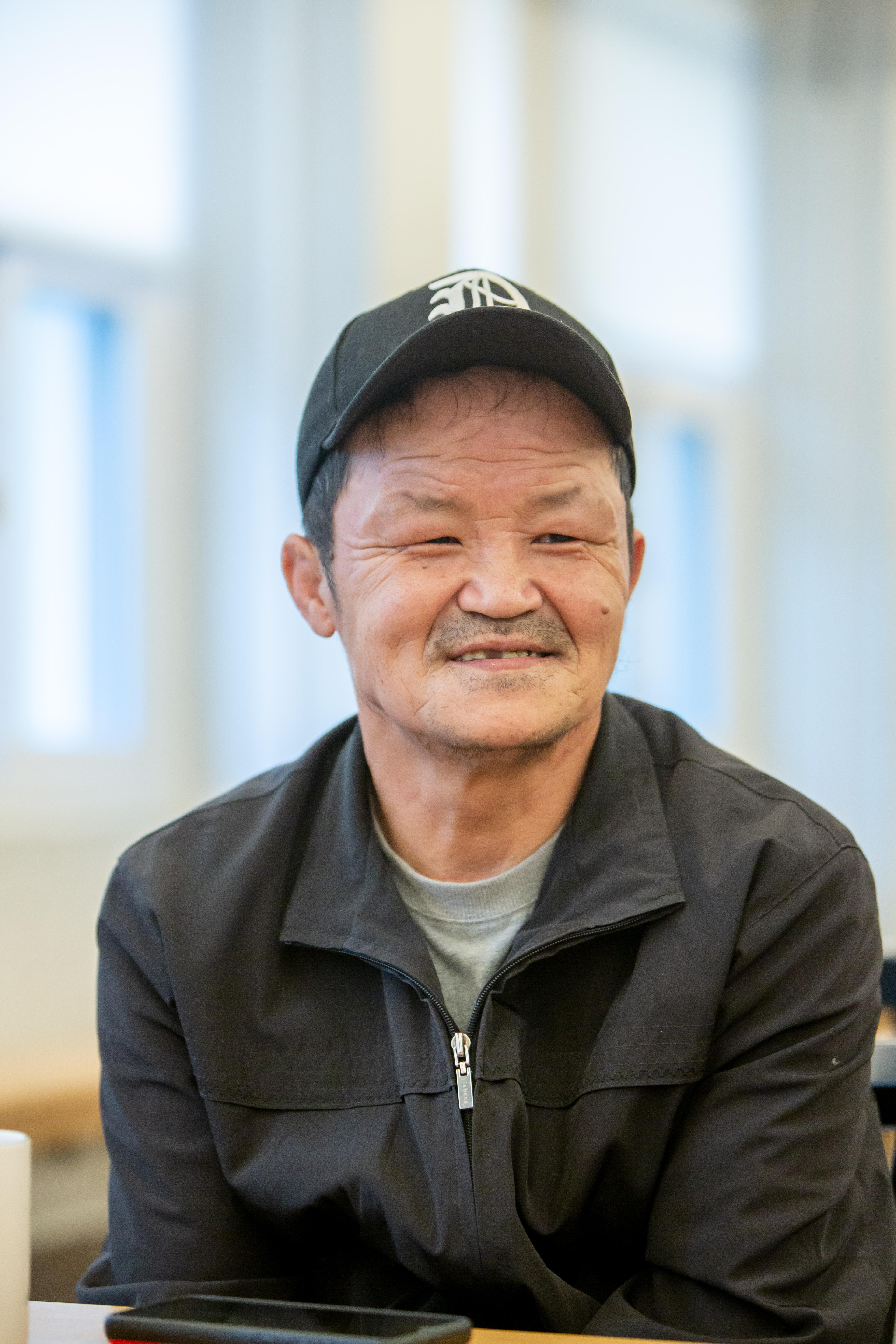
Credit: Kim Sang-joon
My rental home is way easier than living homeless or in goshiwons. My current place is spacious, clean, and nice.
Was she homeless too?
Yes. We started out living at Seoul Station, but we’re living together now. We’ve also spent time at her parent’s house in Daegu [in the southeast of the country]. Her mother lives in a nursing home, so we went there as well. We got permission to live together, and her family gave their blessing, so we’re living together now. It’s way better than living alone! We also have a cute dog. Its name is Bo-ri.
Do you have fights with your partner?
Of course we have fights! [laughs] My wife nags me to go places on weekends; she says, “Why aren’t we going anywhere?” all the time. So I go on picnic walks with my wife on the weekends. We often go to the Han River Park. It’s close to home, so we take slow walks there. We borrow a bike when we go there.
Do you both ride the bike by the river?
No, I go for a walk. I do that because of the puppy. Someone should keep Bo-ri company!
What do you admire the most about your wife?
Everything. I admire everything about her.
And do you have any traits that you are not so fond of?
[Sternly] No!
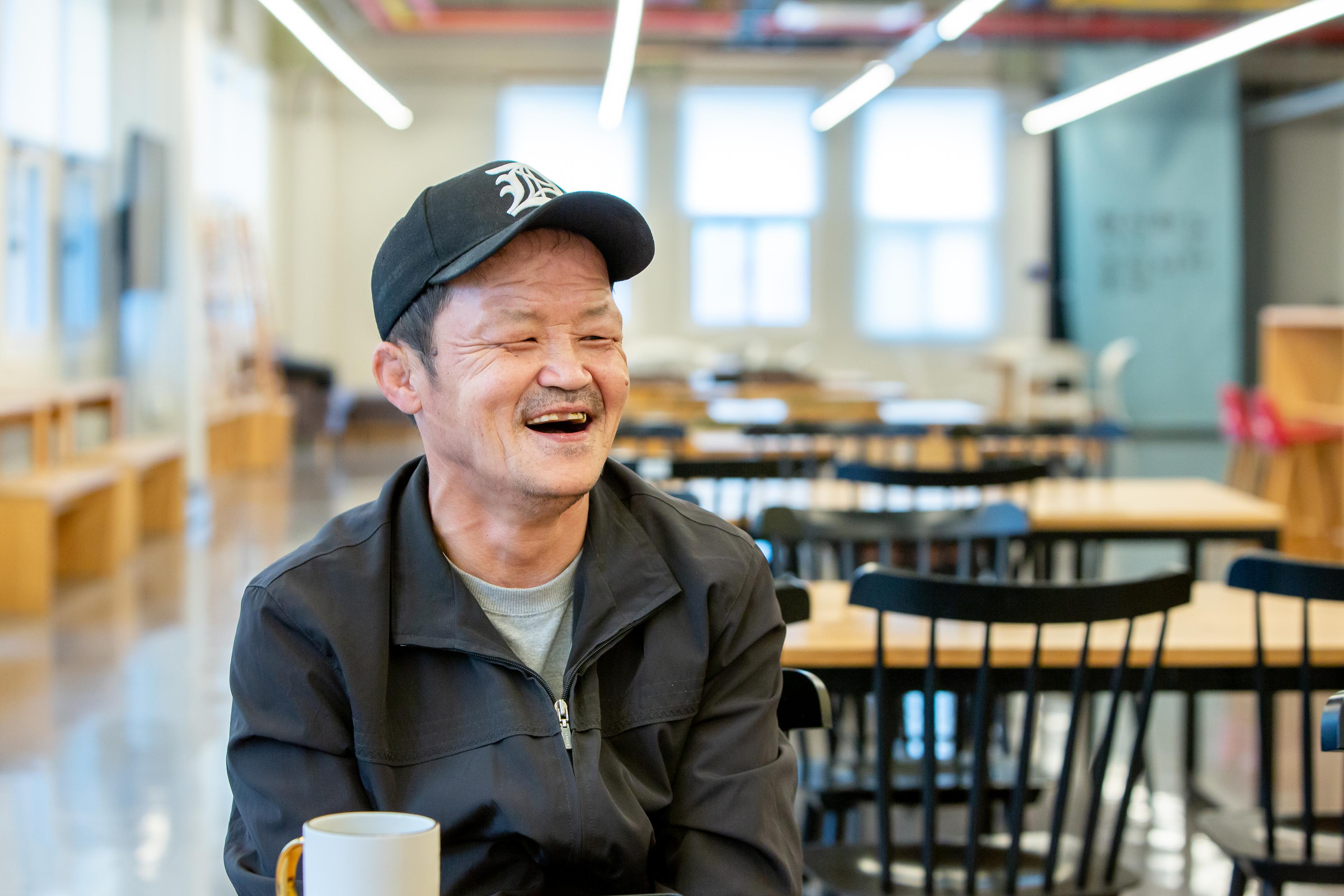
Credit: Kim Sang-joon
When is your wife at her loveliest? Let me start by telling you that “always” is not an acceptable answer!
All the time when we’re together [laughs]. I’ve taken her to my workplace a few times,but she has too much of a hard time when she comes to work with me. My wife’s disabled. She doesn’t cover much ground and has to sit down if she’s extremely tired. She asks to rest even after we take a short break,so I don’t ask her to come to work with me anymore.
Home seems to mean something very special to you. You entered a rental home after a long period of homelessness, and now your home has become a treasured space for you, your wifeand your companion dog.
Yes, [my home is very special to me]. Everything’s going well these days.
What kind of customers do you have?
There are all kinds of customers. There was a customer who brought me drinks on a hot day, and a customer even brought me a box of masks a few days ago. When I first moved into my rental home, one customer gave me cans of tuna as a gift. They always buy new issues of the magazine after they are released. And I also received a rice bowl and soup bowl set as a housewarming gift! My customers make calls to ask when the new issues are out, and they even come by as soon as the issues are printed. I’m thankful to my many customers.
A few days ago, I heard that you gave a homeless person who wanted to become a vendor the transport fare since they didn’t have any money to get to the office. You’re also well-known for giving advice to new vendors. So it’s important to you to help other homeless people to gain independence?
Yes, that’s it. Nothing good comes out of playing around with nothing; it’s better to earn money. I talk aboutThe Big Issue to other homeless people, and they start selling the magazine. Two or more people came to The Big Issue from Seoul Station. I also get calls from people living in goshiwons. Nothing good comes out of just doing nothing. You can move forward when you earn some of your own money.
What kind of life do you want to live in the future?
Well, I would like to go home someday. I want to go to Wando with my wife and live there. My mom and my sibling are living in Gwangju. I don’t meet up with them often, but I call them from time to time. I didn’t visit them last holiday season, either, because of COVID-19. Back then, it was such a big worry that people would gather together and catch COVID-19. I miss them so much.
Translated from Korean via Translators without Borders
